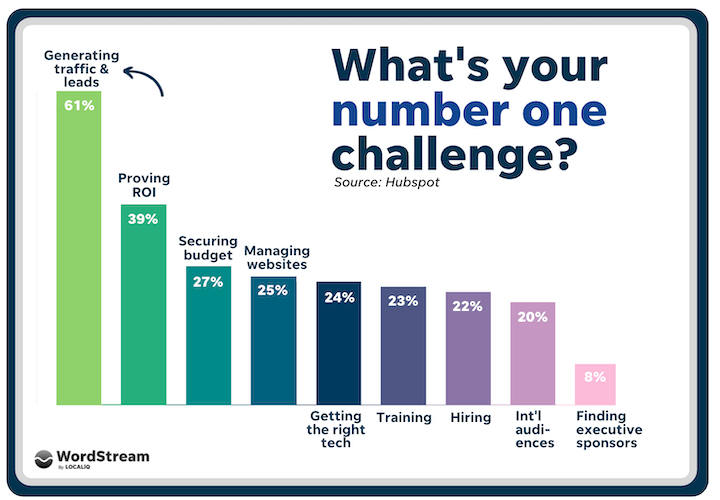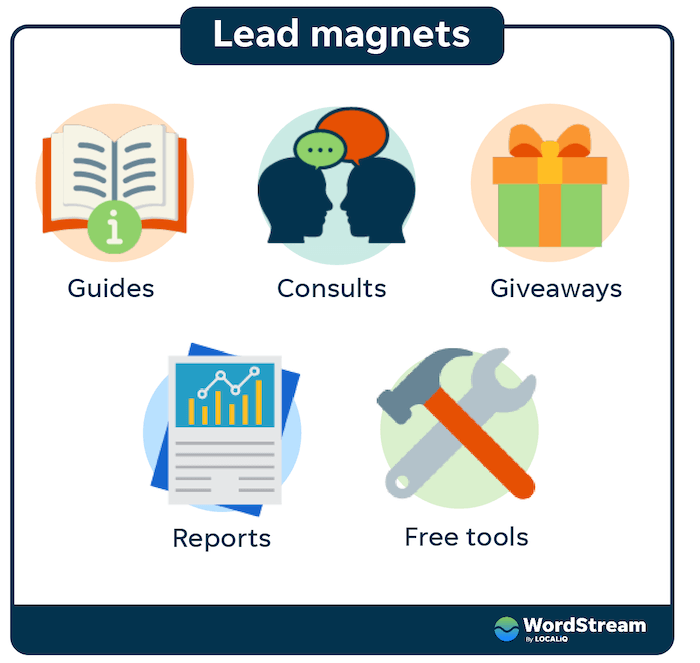If you run a business that relies on local customers, then you’re in the right place. This article will delve into the world of local marketing and show you how it can be used to generate leads for your local business. We’ll cover what “local” means in the online world, how to make your business visible to people physically near you, and why local marketing and mobile devices are a match made in heaven. We’ll also hear from Mike of Cotswold Balloon Safaris, who will share his approach to local marketing and how it has helped his business. So whether you dream of becoming a global brand or simply want to be the go-to shop in your neighborhood, keep reading to discover how the web can help you achieve your goals!
Understanding Local Marketing
Local marketing refers to the strategies and techniques businesses use to target and engage with customers in their local area. It is focused on reaching people who live or work nearby, as well as individuals who are visiting the area. Local marketing is especially important for businesses that rely heavily on local customers, such as brick-and-mortar stores, service area businesses, and small businesses in general.

This image is property of i.ytimg.com.
What is local marketing?
Local marketing is a form of marketing that specifically targets customers within a specific geographic area. The goal is to promote a product or service to individuals who are physically near the business. This could include people who live in the area, people who work nearby, and even tourists or visitors to the region. Local marketing can take many forms, including online advertising, print advertising, local events, community partnerships, and more.
The importance of local marketing for local businesses
For local businesses, reaching the local market is crucial for success. By targeting customers who are physically nearby, businesses can increase their visibility and attract customers who are more likely to convert into leads and sales. Local marketing allows businesses to engage with their target audience on a more personal level, build relationships within the community, and establish a strong local presence. It also helps businesses to differentiate themselves from larger competitors and stand out in a crowded market.
How local marketing can generate leads for local businesses
Local marketing plays a key role in generating leads for local businesses. By understanding the needs and preferences of the target audience, businesses can tailor their marketing efforts to effectively reach and engage with potential customers. Local marketing strategies, such as optimizing online listings and utilizing local search engines, can increase visibility and attract qualified leads. Additionally, local advertising opportunities and search engine optimization techniques can further enhance a business’s online presence and attract customers who are actively searching for products or services in the local area.
Identifying Local Customers
To effectively implement local marketing strategies, businesses need to identify and understand their target audience within the local community.
Defining your target audience
Start by defining your ideal customer. Consider demographics such as age, gender, income level, and interests. Identify the specific characteristics that make up your target audience to better tailor your marketing efforts and messaging.
Understanding their needs and preferences
Take the time to research and understand what your target audience is looking for. Consider their pain points, desires, and motivations. This will help you create marketing campaigns and offers that resonate with your audience and drive them to take action.
Identifying the most effective channels to reach them
Once you have a clear understanding of who your target audience is and what they want, you can determine the best channels to reach them. This might include utilizing social media platforms, local search listings, online directories, local advertising, and community events. By targeting the channels that your audience is most likely to use, you can maximize your marketing efforts and generate leads more effectively.

This image is property of www.wordstream.com.
Building a Local Online Presence
Building a local online presence is essential for local businesses to connect with potential customers in their area. Here are some strategies to consider:
Including location details on your website
Ensure that your website prominently displays your business’s location details. This includes your address, phone number, and email address. By providing this information, you make it easy for customers to reach you and learn more about your business.
Providing interactive maps and directions
Integrate interactive maps and directions into your website or mobile app to help customers find your business easily. This is especially important for businesses with physical locations, as it can improve customer satisfaction and increase foot traffic.
Displaying contact information and working hours
Make sure that your contact information, including phone numbers and email addresses, is easily accessible on your website. Additionally, clearly display your business’s working hours so that customers know when they can reach you or visit your physical location.
Utilizing Local Search Listings
Local search listings are online directories that provide information about local businesses. Optimizing your local search listings can help increase your business’s visibility and generate leads. Here are some key platforms to consider:
Importance of Google My Business
Google My Business is a free tool that allows businesses to manage their online presence on Google’s search engine and map. By claiming and optimizing your business listing on Google My Business, you can ensure that your business appears in relevant local search results and takes advantage of Google’s various features, such as reviews and map directions.
Benefits of Ping Local and Yahoo Local
Ping Local and Yahoo Local are additional online directories that can enhance your business’s online presence. By claiming and optimizing your listings on these platforms, you can reach a wider audience and increase your chances of generating local leads.
Optimizing your local search listings for better visibility
To optimize your local search listings, make sure to provide accurate and up-to-date information about your business, including your address, phone number, website URL, and working hours. Encourage customers to leave reviews, as positive reviews can improve your business’s visibility and reputation. Additionally, utilize keywords and relevant descriptions to help search engines understand what your business is all about.

This image is property of b2281820.smushcdn.com.
Leveraging Local Advertising Opportunities
Local advertising can be a powerful tool to reach your target audience and generate leads. Here are some strategies to consider:
Using review sites to advertise your business
Online review sites, such as Yelp or TripAdvisor, can be an effective platform for advertising your local business. Encourage your satisfied customers to leave positive reviews, respond to any negative feedback, and utilize advertising features offered by these platforms to increase your visibility.
Utilizing social networks for local advertising
Leverage the power of social media platforms, such as Facebook, Instagram, and Twitter, to advertise your local business. Create engaging content, target your audience based on demographics and location, and utilize paid advertising features to reach potential customers in your area.
Maximizing the potential of search engine ads
Consider running local search engine ads to target customers who are actively searching for products or services in your area. Use relevant keywords, create compelling ad copy, and focus on your unique value proposition to attract potential customers.
Implementing Local Search Engine Optimization
Local search engine optimization (SEO) is the process of optimizing your website and online presence to improve visibility in local search results. Here are some strategies to implement:
Understanding the basics of local SEO
Familiarize yourself with the fundamentals of local SEO, such as the importance of local keywords, optimizing your website for mobile devices, and building local citations and backlinks.
Optimizing your website for local keywords
Identify relevant keywords that are specific to your local area, and incorporate them naturally into your website’s content, meta tags, and headings. This will help search engines understand the local relevance of your business.
Leveraging local citations and backlinks
Local citations and backlinks are mentions of your business’s name, address, and phone number (NAP) on other websites. Ensure that your NAP information is accurate and consistent across all online platforms, including local directories, review sites, and social media profiles. Acquiring high-quality backlinks from reputable local sources can also boost your website’s authority and visibility.

This image is property of www.wordstream.com.
Creating and Promoting an Online Presence
Developing a comprehensive online marketing strategy is essential for generating leads and attracting customers to your local business. Here are some strategies to consider:
Developing a comprehensive online marketing strategy
Create a plan that outlines your marketing goals, target audience, key messages, and the channels and tactics you will use to reach your audience. This could include content marketing, social media marketing, email marketing, paid advertising, and more.
Utilizing content marketing to attract local leads
Create and share valuable and engaging content that is relevant to your target audience. This can include blog posts, videos, infographics, and more. By providing informative and valuable content, you can establish yourself as an authority in your industry and attract potential customers.
Promoting your online presence through various channels
Use a mix of online channels, such as social media, email marketing, and search engine advertising, to promote your online presence and attract local leads. Tailor your messaging and content to each channel and engage with your audience to build relationships and drive conversions.
Monitoring and Analyzing Local Marketing Efforts
It is crucial to continuously monitor and analyze the performance of your local marketing campaigns to ensure their effectiveness. Here are some steps to take:
Tracking the performance of your local marketing campaigns
Use analytics tools to track key metrics, such as website traffic, conversion rates, and customer engagement. This will help you understand what is working and what needs improvement.
Analyzing customer engagement and conversion rates
Analyze data related to customer engagement, such as website interactions, email open rates, and social media engagement. Additionally, track conversion rates, including leads generated and sales made, to evaluate the success of your marketing efforts.
Making necessary adjustments based on data analysis
Based on the data and insights gathered from tracking and analysis, make the necessary adjustments to your marketing strategies. This could include refining your messaging, targeting different audience segments, or reallocating resources to more effective channels.

This image is property of ceblog.s3.amazonaws.com.
Engaging with the Local Community
Building strong relationships within the local community is essential for local businesses. Here are some strategies to consider:
Building relationships with local influencers
Identify local influencers, such as bloggers or social media personalities, who have a significant following in your area. Engage with them by offering discounts, hosting events, or collaborating on content to increase your exposure among their followers.
Participating in local events and sponsorships
Get involved in local events, such as festivals, charity fundraisers, or community gatherings. This allows you to connect with potential customers face-to-face and showcase your business’s involvement and support in the local community.
Creating partnerships with other local businesses
Form partnerships with complementary local businesses to cross-promote each other’s products or services. This can help expand your reach and attract new customers who are already engaged with businesses similar to yours.
Conclusion
Local marketing is a powerful tool for generating leads and connecting with customers in the local area. By understanding your target audience and leveraging various local marketing strategies, you can effectively reach and engage with potential customers. Building a strong local online presence, utilizing local search listings and advertising opportunities, implementing local SEO, creating and promoting an online presence, monitoring and analyzing marketing efforts, and engaging with the local community are all crucial steps for long-term success in local marketing.



